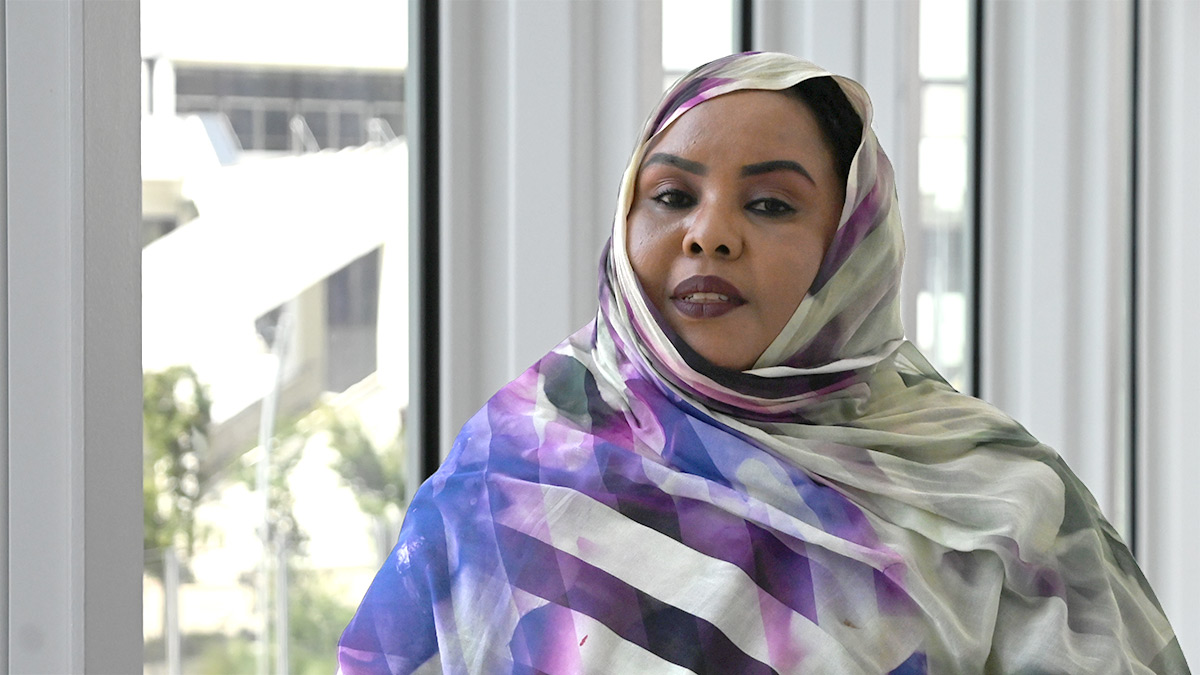
Violent extremism undermines peace and security, human rights and sustainable development. No country or region is immune from its impacts.
Ahead of the International Day for the Prevention of Violent Extremism on 12 February, the United Nations Office on Drugs and Crime (UNODC) is highlighting its work to prevent violent extremism.
“Our religion is a true, honest religion that treats women with justice and fairness,” Zeinabou Maata declares, leaning forward for emphasis.
Zeinabou, a Muslim woman from Mauritania, knows of what she speaks. She is the daughter of Baba Ould Maata, a highly respected Mauritanian scholar. Inspired by her father, Zeinabou embarked on her own journey of studying the Quran and other traditional texts from a young age. She graduated from the largest Islamic institution in Mauritania and studied Islamic law at the post-graduate level.
Having been brought up in an Islamic household, Zeinabou believed it is her responsibility and duty to give back to her community.
Moreover, she is one of 50 women serving on the frontlines of preventing violent extremism in her country.
Known as the Mourchidates, these religiously trained women educate their communities on the risks of violent extremism. Established in 2021 with the support of the United Nations Office on Drugs and Crime (UNODC), the Mauritanian Ministry of Islamic Affairs, and the Association of Women Heads of Household, the Mourchidates network works to combat violent extremism in various settings, including prisons, in Mauritania.
Mauritania belongs to the Sahel region in Africa, an area which has faced “an expansion of terrorism and extremist movements,” Zeinabou explains.
Starting in 2005, Islamic terrorists carried out several attacks across the country, to the dismay of devout Muslims and proud Mauritanians like Zeinabou.
“We Mauritanians are tolerant and understanding of others, and we accept and welcome people from other religions,” she proudly says. “These attacks were contrary to both Mauritanian culture and Islamic sharia.”
But how to fight back against rhetoric that uses and distorts the Qu’ran?
“The Qu’ran,” Zeinabou says simply.
Chosen specifically for their expertise on Islam, the women focus on using Islamic arguments to counter messages of hate and violence.
“We clarify verses from the Qu’ran and explain the hadith [a collection of sayings from the Prophet Muhammad], both of which urge peace and civil and community security,” Zeinabou continues. “We point out the seven concepts that are used in extremist discourse, such as jihad, and use Islamic arguments that show the correct intention of these verses – which combats extremist ideologies.”
The Mourchidates women determine where and which groups are at risk of falling prey to extremist arguments. They then use their network to facilitate dialogues at prisons, mosques, schools, markets, or even homes.
“Once, we Mourchidates visited a prison – the first time something like this had been allowed in Mauritania,” Zeinabou says. Inside, they discovered that one of the female prisoners had been a powerful leader within the Salafist Group, a conservative Islamic movement that follows the practices of early generations of Muslims.
“Extreme sentences often generate extremist ideas in prisons,” she relates. “We are proud that we were able to persuade her – with religious arguments – that Islam is a righteous and tolerant religion.”
The woman agreed to participate in a dialogue between religious scholars and former Salafists, sponsored by the Mauritanian government.
“Eventually,” Zeinabou says proudly, “she announced her withdrawal from these extremist ideas and promised to get involved in activities that serve Mauritania’s security and civil peace.”
In 2022, Mourchidate assistance reached more than 10,000 people. In Nouakchott, the Mourchidates supported the wives, sisters, and mothers of detainees, helping them to abandon violent, extremist ideas. In Ould Yengé, near the borders with Mali and Senegal, the Mourchidates contributed to an early warning system by alerting law enforcement forces of suspicious cases. Meanwhile, in Adel Bagrou, a city on the border with Mali, the Mourchidates network provided support to young victims of terrorism who had found refuge in Mauritania, facilitating their integration into everyday life in their new country.
Mauritania has not experienced a single terrorist attack since 2011, thanks in part to the efforts of people like Zeinabou and the network.
“Women are capable of achieving anything they set their mind to,” she says. “They have the gift of being persuasive, tipping the scales in their favour, and they should use this ability to help serve their countries.”